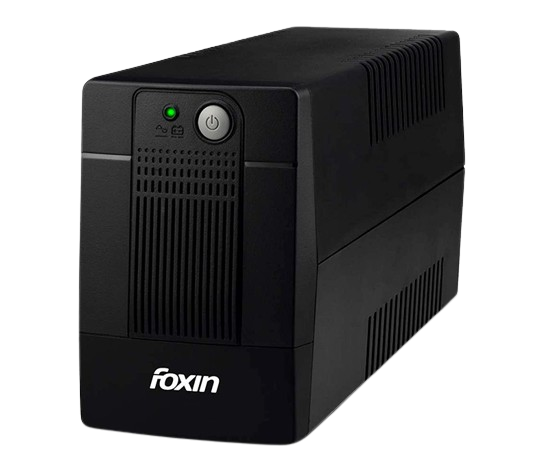A UPS (Uninterruptible Power Supply) is a device that provides backup power and protects computers and other electronics from power outages, surges, and voltage fluctuations.
Specifications
Primary Function
Provides temporary backup power during power outages, allowing users to save work and shut down devices safely.
Protects sensitive electronics from power surges and voltage fluctuations that could cause damage.
Types of UPS
Offline/Standby UPS:
Provides power directly from the wall outlet during normal operation.
Switches to battery power only when an outage or fluctuation occurs.
Ideal for personal computers or small home offices.
Line-Interactive UPS:
Corrects minor power fluctuations without switching to battery power.
Suitable for small to medium-sized businesses and sensitive equipment.
Online UPS:
Provides continuous, clean power by converting AC to DC and then back to AC.
Best for large, mission-critical equipment such as servers and medical devices.
Battery Life and Runtime
Battery runtime typically ranges from 5 to 30 minutes depending on the load and UPS capacity.
Longer runtime is available in larger models for extended protection.
Hot-swappable batteries allow replacement without powering down the system.
Power Capacity
Measured in Volt-Amps (VA) or Kilovolt-Amps (kVA), indicating the maximum power the UPS can support.
Common capacities: 500 VA, 1000 VA, 2000 VA, and higher, depending on the number of devices being supported.
Surge Protection: Some UPS units include built-in surge protectors to safeguard electronics from sudden spikes in voltage.
Key Features
LCD Display: Provides real-time information about power usage, battery status, and system health.
Automatic Voltage Regulation (AVR): Adjusts voltage to optimal levels without using battery power.
USB/Network Monitoring: Allows connection to a computer for monitoring and logging UPS performance.
Applications
Home Use: Protects personal computers, gaming systems, and home theater equipment.
Business: Ensures uptime for workstations, network equipment, and point-of-sale systems.
Data Centers: Provides reliable backup power for servers, network infrastructure, and critical equipment.
Medical Devices: Safeguards essential medical equipment from power interruptions.
Key Considerations
Capacity should be selected based on the total wattage of the devices being protected.
Battery type (e.g., lead-acid, lithium-ion) affects lifespan and recharge time.
Form Factor: Choose between tower or rack-mounted UPS based on available space and installation needs.
